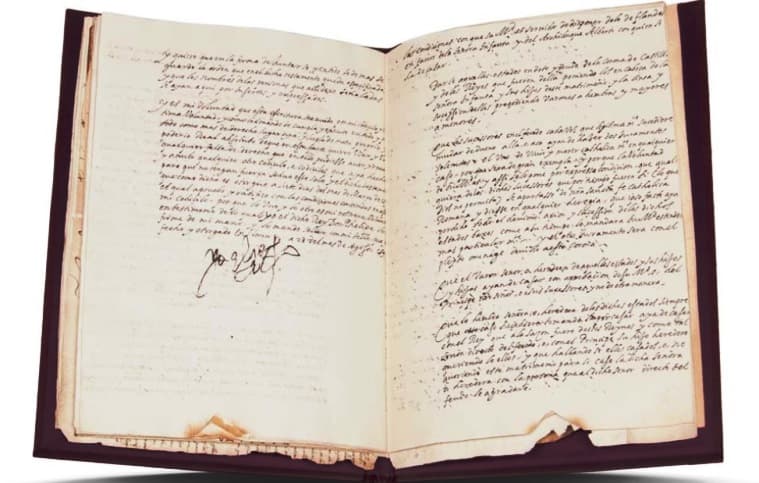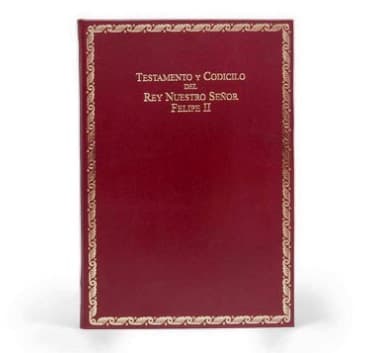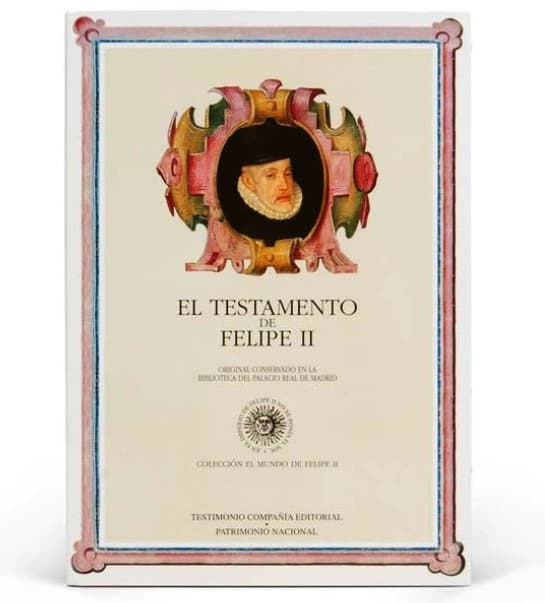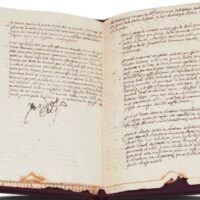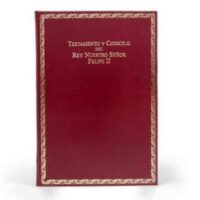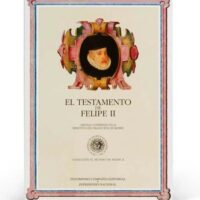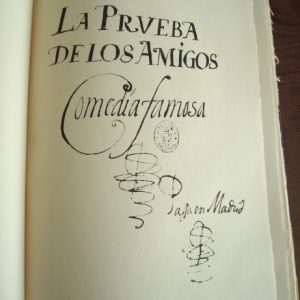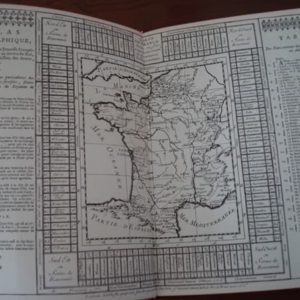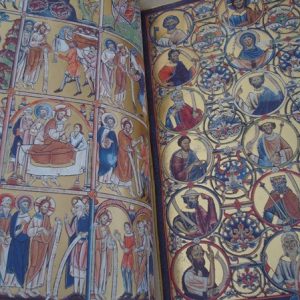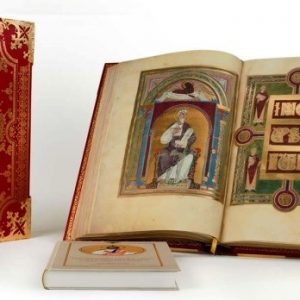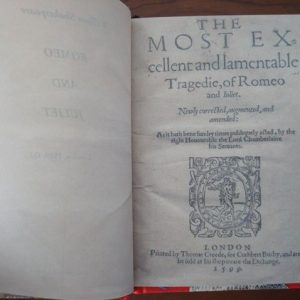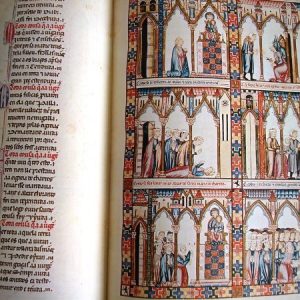Description
The Testament and Codicil of Philip II are preserved in the Library of the Royal Palace of Madrid. Both documents could hardly be better accommodated.
Unlike his successors, Philip III and Philip IV, and as another sign of his far-sighted condition, Philip II signed his will four years before his death, certainly when his ailments and advanced age for the time (almost 70 years) made him so. They advised, but above all when the international situation (a certain European balance) and the future of his favorite daughter, Isabel Clara Eugenia (the person most mentioned in the will after the prince), with no hope of being queen of France, demanded it. . The codicil, signed three years later, reserved the second clause for Isabel’s marriage and her dowry: the Netherlands.
If, despite the rigidity of its structure and the stereotype of its formulas, the will is a personal and intimate document, manifesting the deepest convictions of the person, it should also be so and, if possible, to a greater extent when it is a king who signs it. It does not seem that the last will of a king has to be less revealing or more reserved than that of any of his subjects.
Divided into 49 clauses, the first 19 (profession of faith, burial, payment of debts, alms, celebration of suffrages…) are those of an individual, the rest of a ruler. Provisions 20-27 deal with the Hispanic monarchy, focusing on three issues: the integrity of the royal patrimony, the permanence of the union of the Crowns of Castile and Portugal, and the return of what was alienated to the Church and Military Orders, topic crucial in the financial policy of Charles V and Philip II, a source of constant nightmare in the lives of both and of evident scruples at the end of the latter’s. With the advice to his son in his capacity as heir, the part of the will of clear international significance begins (clauses 28-42), polarized in the succession order and in the temporary separation of the Netherlands in favor of his daughter. Isabel Clara Eugenia. The last clauses are dedicated to ensuring and endorsing the inalterability of the testamentary content.
Few documents like the will of Philip II allow us to decipher the complex personality of a king and the exceptional transcendence of a kingdom.
Extraordinary facsimile edition made in 1997 by the publisher Testimonio, numbered, limited and certified. Facsimile bound in maroon goatskin stamped in gold on both sides, format 22 x 31.5 cm. 74 pages. Accompanied by the corresponding study book by José Luis Rodríguez de Diego, director of the General Archive of Simancas.
Complete copy and in perfect condition, new, unused.
Free shipping for this item. Ask us any questions, indicating the article reference.




